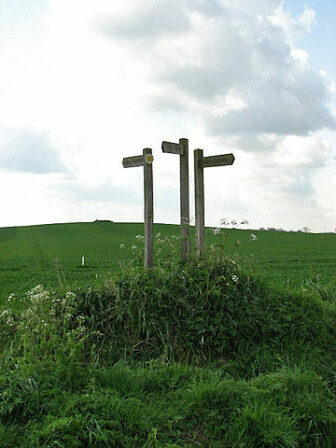Stand by and see, and ask for the ancient paths,
Where the good way is, and walk in it;
And you will find rest for your souls.
Jeremiah 6:16
So there is a stirring in your heart and you feel drawn to the Ancient Paths mentioned by the prophet Jeremiah. It’s exciting, but maybe a little intimidating. Perhaps you are asking yourself, “How could I have missed this all these years?” Don’t worry, you are not alone. The Holy Spirit (in Hebrew, the Ruach Hakodesh) is opening hearts and minds all over the world to this “new” understanding – which, of course, is not new at all. This is prophetic, but we can get into that later. For now, the question is “How do I get started?”
For many of us, the first exposure to things Messianic is in the annual Feast celebrations, such as the Passover or the Feast of Tabernacles (Sukkot). It seems like preachers on Christian television bring these up frequently, although often it is a pathway to ask for funds. But these are celebrations our Father intended us to enjoy, and every one of them point us toward Messiah Yeshua, the Hebrew name for Jesus Christ. And although there are references to these Feasts throughout the New Testament, they are all conveniently outlined for us in Leviticus 23.
For others, the light comes on in discovering the beauty of the weekly Sabbath. Keeping the Sabbath is truly a delight (Isaiah 58:13) – so why do so many people call it a burden, or bondage, or some similar term? Think about it for just a minute – anyone you have ever heard tell you that the Sabbath is some kind of bondage is someone who is not keeping it. Our loving heavenly Father has promised so much to those who will simply do what he says. We will explore here some of the ways to keep – or rather, guard (that is the meaning of the Hebrew word) – the Sabbath.
Your whole paradigm is changing, and you are entering into a fullness of understanding like you have never known before. You will draw closer to the Father and experience a more intimate relationship with Messiah Yeshua than you ever dreamed possible. Here is a key essential element – always stick to the Word, the Bible. Many people, including me, will offer you other advice and resources, but they can never take the place of or be a higher priority than the Word of God. Hang on, you are in for a fantastic journey.
The Foundation
Besides the terms Messianic and Hebrew Roots, you will likely hear phrases like Torah Observant or Torah Obedient. Torah may refer to the first five books of Moses, called the Torah in Hebrew or the Pentateuch in Greek. But the word itself, as used in the Bible, means “teaching” or “instruction,” specifically the instructions given by God. In most Bibles, Torah is translated as Law, which too often is viewed in a negative context.
Though great importance is placed on the Torah, the foundation and focus of this movement is Yeshua – that’s the Hebrew name of the Messiah, Jesus. He told us that everything that had been written in what we call the Old Testament was written about him.
“You search the Scriptures because you think that in them you have eternal life; it is these that testify about Me” (John 5:39).
“For if you believed Moses, you would believe Me, for he wrote about Me” (John 5:46).
Then beginning with Moses and with all the prophets, He explained to them the things concerning Himself in all the Scriptures (Luke 24:27).
Now He said to them, “These are My words which I spoke to you while I was still with you, that all things which are written about Me in the Law of Moses and the Prophets and the Psalms must be fulfilled” (Luke 24:44).
So if the Torah is all about Yeshua, and if Yeshua is the embodiment of Torah, how did we get so far away from that today? Yeshua’s own brother, Jude (or more properly, Judah) saw the problem developing in his day.
Beloved, while I was making every effort to write you about our common salvation, I felt the necessity to write to you appealing that you contend earnestly for the faith which was once for all handed down to the saints (Jude 1:3).
The “faith which was once for all handed down” – the “ancient paths” spoken of by Jeremiah – means following the Messiah and returning to the Torah, the instructions of our Heavenly Father. Let’s get started. Study about the Sabbath and the Feasts. But don’t just fill your head with knowledge – jump in, put into practice what you are learning! If you don’t get it quite right, keep on trying! Read about some of the resources that might help you along the way.
And come back often. We’re always adding new posts to our blog, and learning right along with you.
Unless marked otherwise, Scripture quotations are from the New American Standard Bible (NASB) © The Lockman Foundation

